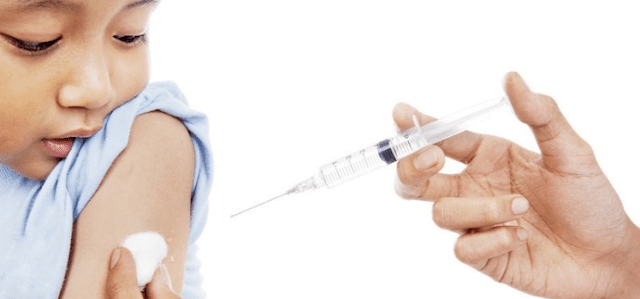How To Protect Your Kids From Summer Heat Waves?
Summer is known to be pleasant since many people go on vacation and enjoy outdoor activities. Children are especially happy because they get to play their favourite games outside. However, summer may also be challenging for children. As per the General Pediatrician in Delhi, children are unable to adjust to high temperatures compared to adults because they do not sweat as much, limiting their ability to cool down. Parents can unintentionally make various blunders that increase children's body temperature, such as walking outside with them on hot days, dressing them in many layers of garments, turning off the air conditioner, and not bathing them every day.
Heat Wave- Effect on Child Health
Extreme heat can be defined as a "period of extreme heat and humidity with temperatures above 90 degrees for at least two days" and is a serious problem. Heatwaves have a severe effect on the quality of the air. According to studies, hot and humid days boost the formation of ground-level ozone, a harmful pollutant that is the primary source of smog. Children with asthma are more susceptible to ground-level ozone because it harms their respiratory system.
A heat wave can cause heat stroke and dehydration, increasing the risk of death and disease. Heat-sensitive individuals include children, those who live alone, pregnant women, those with disabilities or chronic medical issues, athletes, and those who work outside.
How to Protect Your Kids From Summer Heat Waves?
Extreme heat can be experienced indoors, especially if the home does not have proper ventilation. Follow these suggestions to prepare your home for heatwave prevention for your kids:
Plan and manage your cooling and ventilation solutions strategically.
A good air conditioning unit can help parents maintain the temperature and humidity levels in their home for their children. Without an air conditioner, parents may circulate air around their home with box and ceiling fans. Using box fans to force hot air outdoors can serve as an "exhaust" system, bringing in cooler evening air. As the temperature outside drops at night, people can open windows to increase air circulation. During extreme daytime, close all doors and windows, drapes, and blinds to stay cool.
- Reduce unwanted sources of heat inside the house.
Light bulbs and computers left on can cause excessive heat. Eat as much fresh food as possible to avoid using gas or electric stoves, which can raise house temperatures. Use candles carefully. Scented candles emit harmful, volatile organic compounds while heating the home.
- Consider putting shades on your windows.
As per, Pediatrician Specialist in Delhi, one can also keep the doors and windows open on hot summer days may seem like the best way to keep the house cool, but at higher temperatures, they should be closed. Keeping the windows closed, particularly during the hottest part of the day, can help the home stay a little cooler. The direct sunlight that enters the house through the windows is primarily converted to heat, so keep the curtains and blinds closed during the hottest hours. Consider using blackout shades or curtains to cover windows and completely block sunlight.
Know The Signs of a Heat Stroke and Make Emergency Plans:
Heatwave is a serious condition, and warning signs are not always obvious, especially among children. Look at your child for common signs, such as:
- Heat rashes
- Thirst
- Slurred speech, feeling disoriented
- Upset stomach, nausea, and dizziness
- Involuntary muscular spasms in the arms or legs, as well as profuse sweating
- Heat waves can be addressed with simple first aid techniques, and emergency numbers should be kept ready.
Monitor the air quality in the house in real-time.
Monitoring changes in the house's temperature and humidity allows parents to respond quickly and fix any concerns that occur. Using a smart air quality monitor in the house can help parents discover which rooms become hotter or colder at specific times, automate the heating and cooling systems, and avoid heat-related problems for their children.
- Stay at home.
Children should avoid going outside between 12:00 and 4:00 p.m. and instead stay at home. Parents can spend time with their children playing indoor activities like carom, board games like snake and ladder, chess, and ludo, reading, listening to music, and watching interesting films.
- Drink plenty of water.
Encourage children to drink enough water to prevent dehydration. On hot days, babies on breast milk can be given more breast milk but not water, especially in the first 6 months. Infants consuming formula can also be given more formula in a bottle.
- Opt for loose-fitting clothes.
Choose colored, loose-fitting clothing made from natural materials such as cotton and linen for the children.
Consult with Pediatrician in Delhi, Dr. Promilla Butani if your child is experiencing headaches, diarrhoea, breathing problems, nausea, vomiting, or fainting incidents. Make sure the child is safe when it is hot outside. It is important to take immediate action if your child is experiencing any health issue.
Read More:
- Everything One Must Know About Breastfeeding
- Why Vaccinations Are Important For Your Baby?
- Last Month of Pregnancy – Tips for Moms to be
- 3 Things to do when your child is born
- 5 Ways to keep your baby happy while you change his diapers!
- How to introduce Solid foods to your baby
- Importance And The Ways of Breast Feeding By Pediatrician Dr. Promilla Butani




Comments
Post a Comment